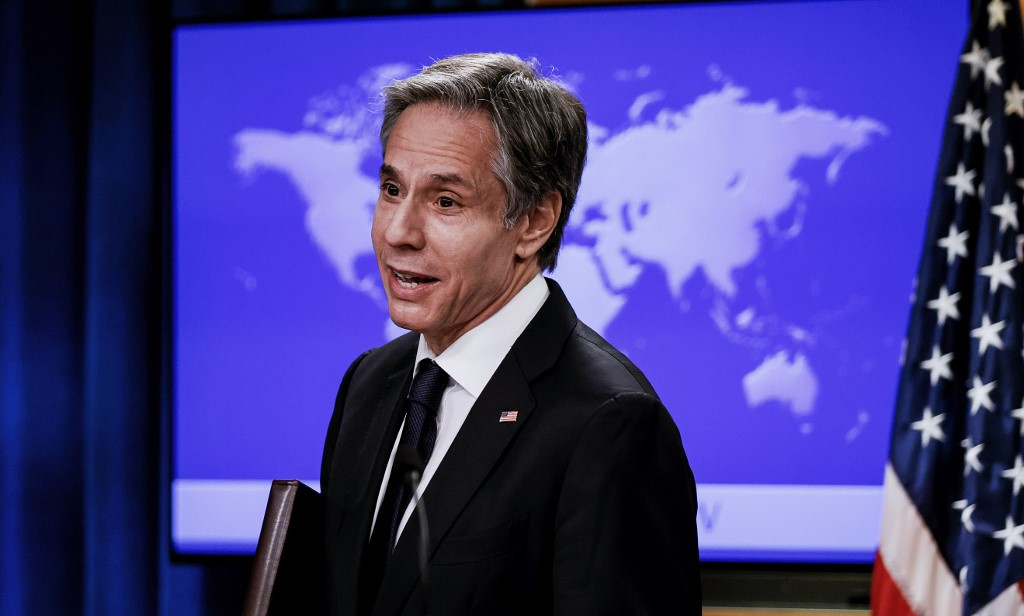Popular Reads
Top Results
Can't find what you're looking for?
View all search resultsPopular Reads
Top Results
Can't find what you're looking for?
View all search resultsUS, Japan, Australia, India foreign ministers to meet online today
Discussion among the Quad's foreign ministers is "critical" to advancing the countries' shared goals of a free and open Indo-Pacific and rising to meet global challenges, including coordinating efforts to address the coronavirus pandemic and climate change, department spokesperson Ned Price said Wednesday.
Change text size
Gift Premium Articles
to Anyone
T
he United States, Japan, Australia and India will hold a foreign ministers' meeting online Thursday, the US State Department said, referring to the Quad grouping widely considered a united front maintained in response to China's rise.
Discussion among the Quad's foreign ministers is "critical" to advancing the countries' shared goals of a free and open Indo-Pacific and rising to meet global challenges, including coordinating efforts to address the coronavirus pandemic and climate change, department spokesperson Ned Price said Wednesday.
US Secretary of State Antony Blinken, Japanese Foreign Minister Toshimitsu Motegi, Australian Foreign Minister Marise Payne and their Indian counterpart Subrahmanyam Jaishankar are expected to attend the meeting, marking the first such talks since the inauguration of U.S. President Joe Biden on Jan. 20.
In Tokyo on Thursday, Japan's top government spokesman Katsunobu Kato welcomed the U.S. move to host the quadrilateral meeting, saying, it "demonstrates the Biden administration's strong commitment to free and open Indo-Pacific and to the Japan-U.S.-Australia-India framework."
Amid China's growing clout in the region, efforts have gained momentum in recent years to renew the grouping, formally known as the Quadrilateral Security Dialogue, of four major democracies in the Indo-Pacific.
The Biden administration has suggested cooperation will continue, with National Security Adviser Jake Sullivan calling the Quad "a foundation upon which to build substantial American policy in the Indo-Pacific."
Earlier this month, a source from one of the countries involved said the four are working to arrange the first meeting of their leaders.
While the four countries have held foreign ministerial meetings and joint military exercises in the past, questions remain as to whether they can fully align themselves to speak with one voice on regional issues and whether they can institutionalize the framework.
Pundits say too much emphasis on the Quad may raise concerns over the possibility of denigrating traditional bilateral alliances such as between the United States and South Korea, which is apparently reluctant to join such a grouping as it could draw the ire of China, as well as the risk of making members of the Association of Southeast Asian Nations feel shunned.










